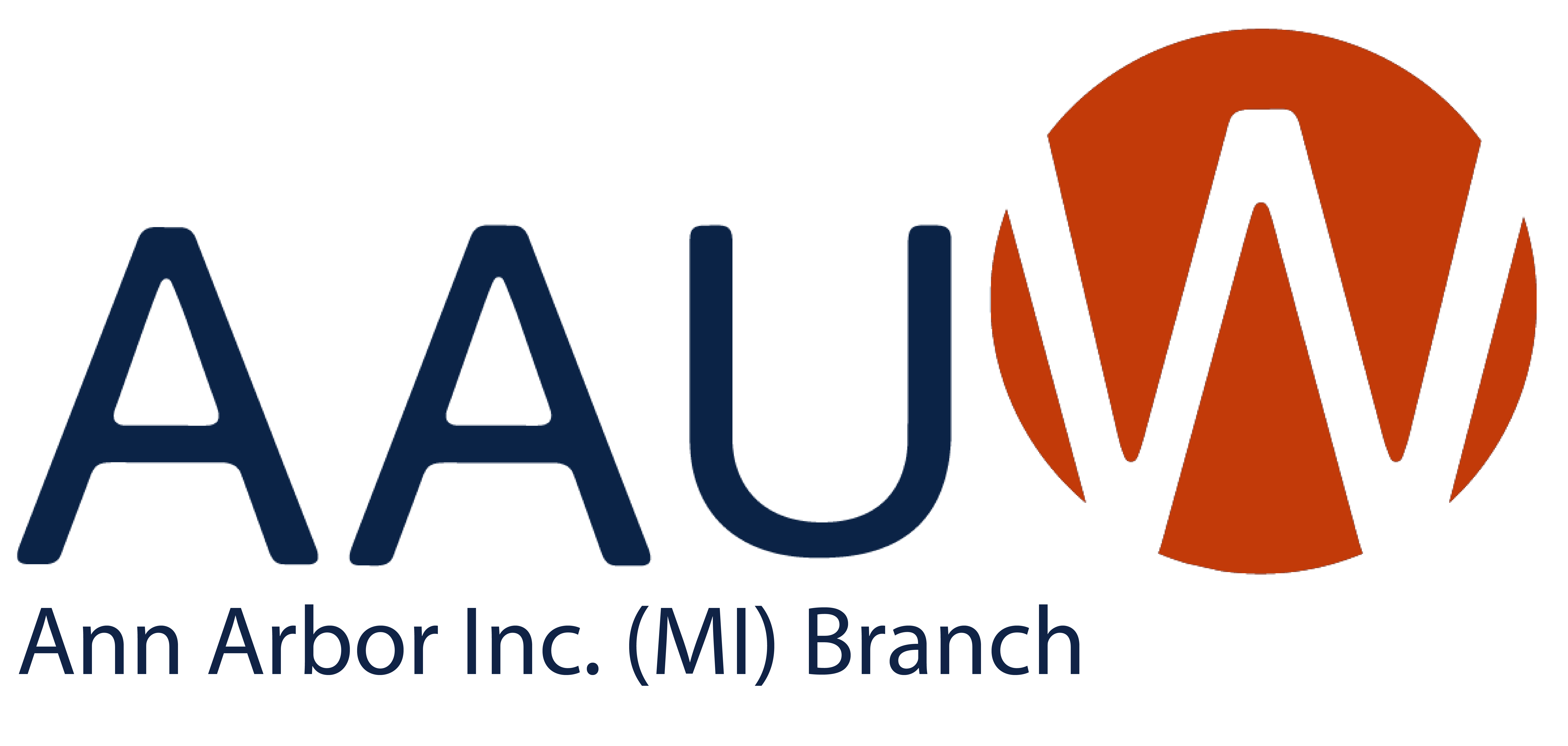AAUW welcomes graduates holding an associate’s degree or higher from a qualified educational institution*, or a degree from a foreign institution recognized by the International Federation of University Women. Non-graduates are also welcome as Community Members.
To join the Ann Arbor Branch, simply fill out and return the Membership Form. This form is for new/renewal members to use for the 2024-25 year (also called Fiscal Year 2025 or FY25). Existing members can renew their membership online via the email they were sent at the end of March.
If you have any questions about membership, you can contact the Membership VP.
Questions about annual dues can be directed to the Dues Treasurer. While most people join as regular members, our complete list of membership categories is shown below.
Dues for July 1, 2024 – June 30, 2025
Shape the Future discounted dues for new members joining after 9/1/2024 at a branch program is $75.
| $111.00 | Regular yearly dues Includes: $72 National (tax deductible charitable contribution) $15 AAUW Michigan $24 AAUW Ann Arbor Branch (tax deductible) |
| $39.00 | Life Member Those who have paid lifetime National dues and now pay only annual State and Branch dues. |
| $0.00 | E-student Affiliate Student must be an undergraduate enrolled in a regionally accredited college or university. |
| $24.00 | In-State Dual Member: Branch only Members who pay National and State dues through another Michigan branch. |
| $39.00 | Out-of-State Dual Member Those who pay National and State dues to another branch outside Michigan, then pay both Branch and State dues to us. |
| $0.00 | Honorary Life Member Those who have been a verified AAUW member for 50 years or more. No dues are assessed. |
| $24.00 | Community Member
Open to any person who supports the mission of AAUW and who does not satisfy the AAUW educational requirement of an associate degree or equivalent or a baccalaureate or higher degree from an accredited college or university. The application form is here. |
*The bylaws define qualified institutions as “educational institutions that offer recognized associate, baccalaureate, or higher degrees and that have full regional or appropriate professional association approval.”

